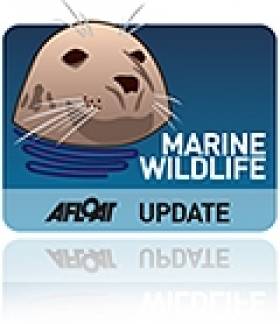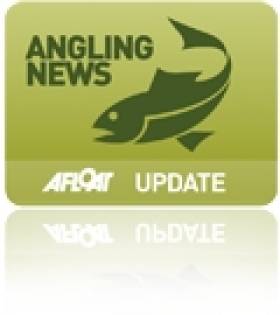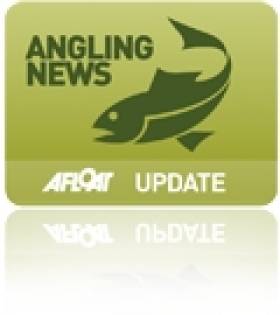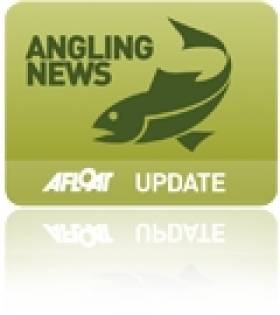Displaying items by tag: DCAL
'Rogue' Anglers May Shoot Seals Threatening NI Fish Stocks
#MARINE WILDLIFE - Northern Ireland's Green Party has warned that "rogue" anglers may shoot seals that are consuming their fish stocks unless they are relocated, the Belfast Telegraph reports.
The protected seals have been getting into the River Quoile in Co Down, allegedly by way of a damaged fish pass, and decimating the area's fish stocks - much to the consternation of local anglers.
Earlier this week Leisure Minister Carál Ní Chuilín confirmed in a response to a question from Green Party MLA Steven Agnew that department officials have requested the Rivers Agency to carry out repairs on the fish pass.
But she also said that no action can be taken to remove seals from the river "without the approval of the Northern Ireland Environment Agency", adding that her department "does not have the specialist knowledge and equipment to remove the seals".
A Green Party spokesperson described the repair work as "absolutely vital because even if the seals are safely removed from the Quoile they will only make their way back in if the fish pass is not repaired.
"And a rather worrying consideration is that a very small rogue element would be prepared to shoot the seals if a solution is not forthcoming.”
Seal shootings have been much in the news as of late, with gardaí in Waterford investigating attacks on four animals in Tramore.
NI Anglers Take to Facebook to Save Their Salmon
#ANGLING - Northern Ireland river anglers are taking a novel approach to lobbying Stormont over salmon exploitation by harnessing the power of social networking.
According to the News Letter, the NoSalmonNets campaigners "have swapped their fishing rods for laptop computers", using Facebook to attract support for their campaign to bring an end to the offshore netting of wild salmon stocks.
As previously reported on Afloat.ie, Northern Ireland's Department of Culture, Arts and Leisure (DCAL) has called for a voluntary ban on offshore salmon fishing, following new research that shows a significant drop in their numbers in the North's rivers.
Seamus Donnelly of NoSalmonNets has welcomed DCAL's recent decision to stop issusing licences for commercial salmon nets that may "contravene European law" off Antrim's north coast, made in an effort to protect salmon stocks in the Foyle river system.
Donnelly explained that the campaign was borne from frustration at the apparent inaction by the NI Executive over the protection of salmon.
“One of the keys to our success has to be Facebook," he said. "The internet has an unlimited reach and we took advantage of that.”
The News Letter has more on the story HERE.
NI Taxpayers Could Foot the Bill for Fines Over Dwindling Salmon Stocks
#ANGLING - Northern Ireland's taxpayers could be left with a bill for millions in EU fines if action isn't taken to reverse the decline of salmon stocks, the News Letter reports.
Ulster Unionist MLA Robin Swann said he believes that voluntary measures to help protect the North's Altantic salmon will not remove the threat of "fines which would likely run into millions which [the people of NI] will end up paying".
As previously reported on Afloat.ie, NI's Fisheries Minister Carál Ní Chuilín called on offshore anglers and commercial fishermen to forego applying for 2012 salmon licences.
Annual monitoring of the North's salmon rivers has shown a failure to reach targets most years since 2002, with the survival rate of salmon in the marine phases in some cases dropping to as little as 5%.
Coastal drift nets and bag nets off the north Antrim coast - which contravene EU directives - have been blamed for intercepting salmon stocks before they reach the rivers, and anglers and conservation groups have already called for a ban.
But Swann says that Department of Culture, Arts and Leisure (DCAL) does not yet have the legislative power to stop them.
The News Letter has more on the story HERE.
NI Calls for Voluntary Ban on Offshore Salmon Fishing
#ANGLING - Northern Ireland's Department of Culture, Arts and Leisure (DCAL) has called on anglers to help protect the North's wild salmon, following new research that shows a significant drop in their numbers.
Fisheries Minister Carál Ní Chuilín told BBC News: "The continued commercial exploitation of wild Atlantic salmon and killing of salmon caught by rod and line in the DCAL jurisdiction is currently untenable."
Annual monitoring of Northern Ireland's salmon rivers has shown a failure to reach targets most years since 2002. The survival rate of salmon in the marine phases has in some cases dropped to as little as 5%.
DCAL has now urged offshore salmon anglers and fishermen to forego applying for 2012 licences, to give time to consider options for the future of salmon fishing.
BBC News has more on the story HERE.

































































